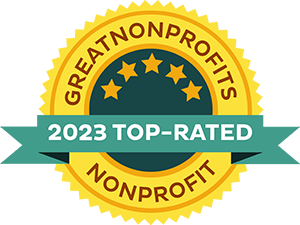Nonprofit work is not for the faint of heart. It takes courage. This is one reason nonprofit leaders are often referred to as superheroes. I trust you are nodding your head in agreement.
I recently read an article by Joan Garry listing the differences between nonprofit and for-profit organizations. If you are familiar with Joan, you know she tells it like it is. Her words of wisdom in this article seem especially fitting for Shepherd’s Center leaders, including those who are long-serving and those who are new. She goes beyond the obvious rewards (making a difference, personal fulfillment, diverse experiences) and challenges (limited resources, high workload, emotional demands) to describe how nonprofit work is about one’s heart, soul, and willingness to step into a new realm of leadership.
Here are a few highlights I feel are worth sharing—in Joan’s no-nonsense way.
1. Decisions can take longer because folks come to nonprofits expecting a voice. How patient are you? Nonprofit leadership demands a very odd juxtaposition of urgency and patience. The big problems nonprofits exist to solve demand patience because often the issues are deep and systemic. At the same time, you can not let the gas off the pedal. Furthermore, nonprofits collaborate with other organizations, community members, and stakeholders. Success is based on building strong partnerships and working collectively towards shared goals. Collaboration and cooperation take time and patience. It isn’t easy to calibrate these different needs.
2. Can you hear a stupid idea without rolling your eyes? Board members, volunteers, and donors will have ideas. These ideas will come from a good place, dripping with passion. But, often, these folks will have insufficient information or context, resulting in the ideas feeling off. Success in the nonprofit sector involves actively involving stakeholders, listening to their needs and perspectives, and incorporating their ideas into decision-making processes. It means striving to empower others. How you honor the ideas of folks who care will take you very far as a nonprofit leader.
3. Do you believe you have as much to get as you have to give? Often, for-profit executives feel that a nonprofit needs more business savvy, strong management, and clear metrics. Maybe that’s true, but the for-profit executives who come open to learning, open to the experience, and eager to be enriched by all that make the nonprofit sector remarkable soar. Success in the nonprofit sector requires adaptability, flexibility, and resilience in facing challenges and setbacks. Nonprofits must be able to respond to changing circumstances, adjust strategies as needed, and continue their work with determination and perseverance. Ask yourself. Are you open? Are you ready to soar?
Success in the nonprofit world requires a different mindset. Like the nonprofit sector, the SCA Network is diverse with organizations of various sizes and areas of focus for supporting older adults. Executives should embrace a learning mindset, be open to new ideas and approaches, and adapt to changing circumstances. This commitment will make a positive difference in the lives of others.
We are so glad you have embraced these ideals to help advance the mission of connecting older adults to life-enriching opportunities.
Sarah Cheney



